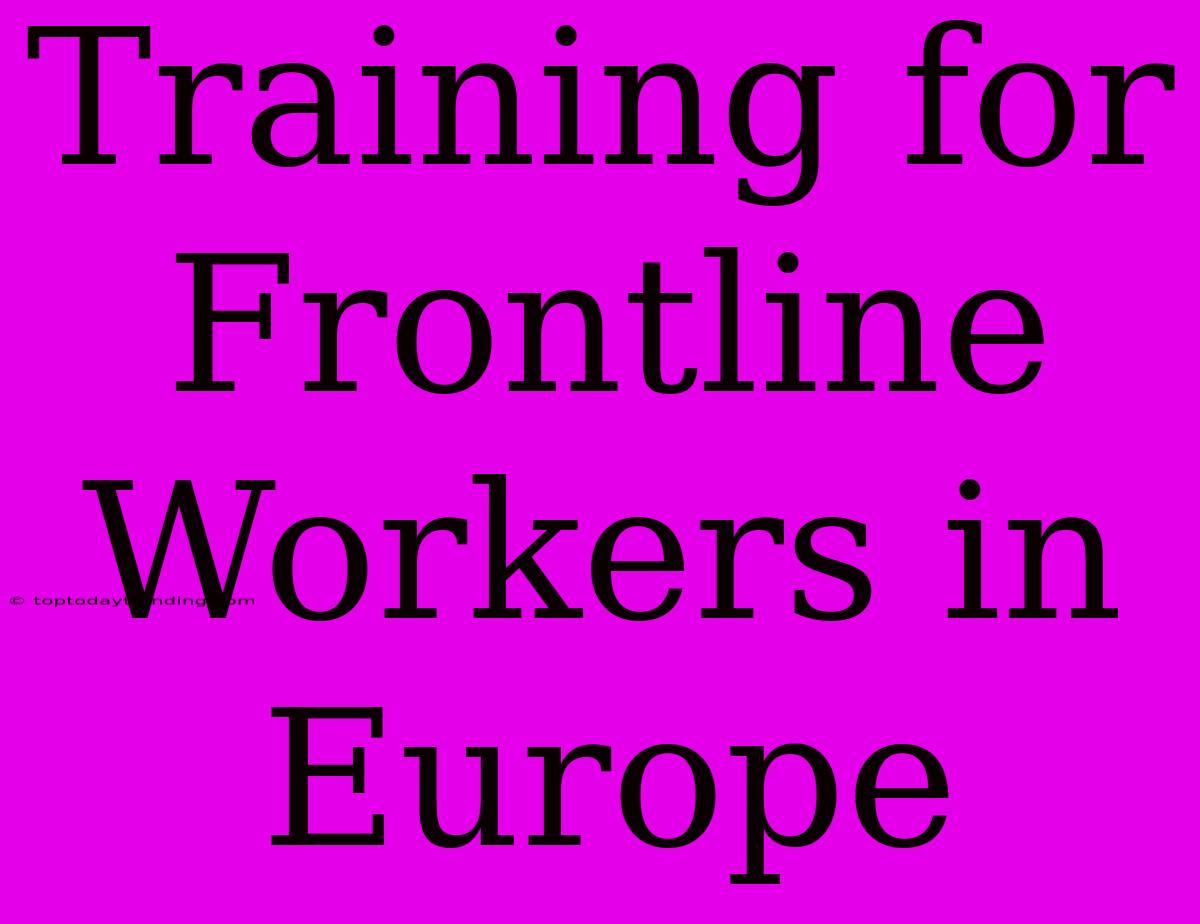Training for Frontline Workers in Europe: A Vital Investment in the Future of Work
The COVID-19 pandemic exposed vulnerabilities in many sectors, highlighting the importance of well-trained frontline workers. In Europe, this realization has spurred significant efforts to invest in training and upskilling programs for this vital workforce.
Why Frontline Worker Training Matters
Frontline workers are the backbone of our economies. They provide essential services, from healthcare and retail to manufacturing and transportation. Their skills are crucial for maintaining productivity, efficiency, and customer satisfaction.
Key Benefits of Frontline Worker Training:
- Improved Skills and Knowledge: Training equips workers with the latest knowledge and skills, enhancing their performance and contributing to improved customer service and productivity.
- Increased Job Satisfaction: A sense of growth and development through training can boost job satisfaction, leading to better morale and reduced turnover rates.
- Enhanced Adaptability: Training prepares workers for changing industry demands, allowing them to adapt to new technologies, processes, and regulations.
- Economic Growth: A skilled and productive workforce is essential for a thriving economy. Investing in frontline worker training can contribute to overall economic growth and competitiveness.
Training Programs for Frontline Workers in Europe:
European governments and organizations are taking a multi-pronged approach to address the training needs of frontline workers. These initiatives encompass:
1. Digital Upskilling:
- EU-funded Programs: The European Union has allocated significant funds for digital skills training programs, specifically targeting frontline workers in sectors like manufacturing, retail, and hospitality.
- Industry-led initiatives: Many industries are partnering with training providers to develop customized digital skills training programs for their frontline workers. These programs focus on digital literacy, data analytics, and automation skills.
- Upskilling for the Green Transition: Training programs are being developed to equip workers with the skills necessary for a sustainable future, including renewable energy technologies and environmental protection.
2. Soft Skills Development:
- Communication and Collaboration: Soft skills training focuses on improving communication, teamwork, and problem-solving abilities, enhancing worker interactions and collaboration.
- Leadership and Management: Programs are available to train frontline workers in leadership skills, empowering them to take on greater responsibility and contribute to organizational goals.
- Customer Service Excellence: Training programs focus on improving customer service skills, enhancing interactions and building stronger customer relationships.
3. Sector-Specific Training:
- Healthcare: Programs offer training in specialized medical procedures, patient care techniques, and technology-assisted treatments.
- Manufacturing: Training focuses on advanced manufacturing technologies, automation, and lean production techniques.
- Retail and Hospitality: Training programs address customer service, product knowledge, and digital marketing skills.
Challenges and Opportunities:
Despite these efforts, challenges remain.
- Accessibility: Access to training opportunities needs to be made more readily available to all frontline workers, particularly in rural and disadvantaged areas.
- Cost and Time: The cost of training programs can be a barrier for some employers, while workers may have limited time available for training due to their demanding schedules.
- Individual Needs: Training programs need to be tailored to the specific needs of individual workers and industries.
Looking Ahead:
Investing in frontline worker training is a crucial investment in the future of work. It will ensure that the European workforce remains competitive and adaptable to the rapidly changing world. By overcoming existing challenges and promoting collaboration between governments, employers, and training providers, Europe can equip its frontline workers with the skills they need to thrive in the years to come.

